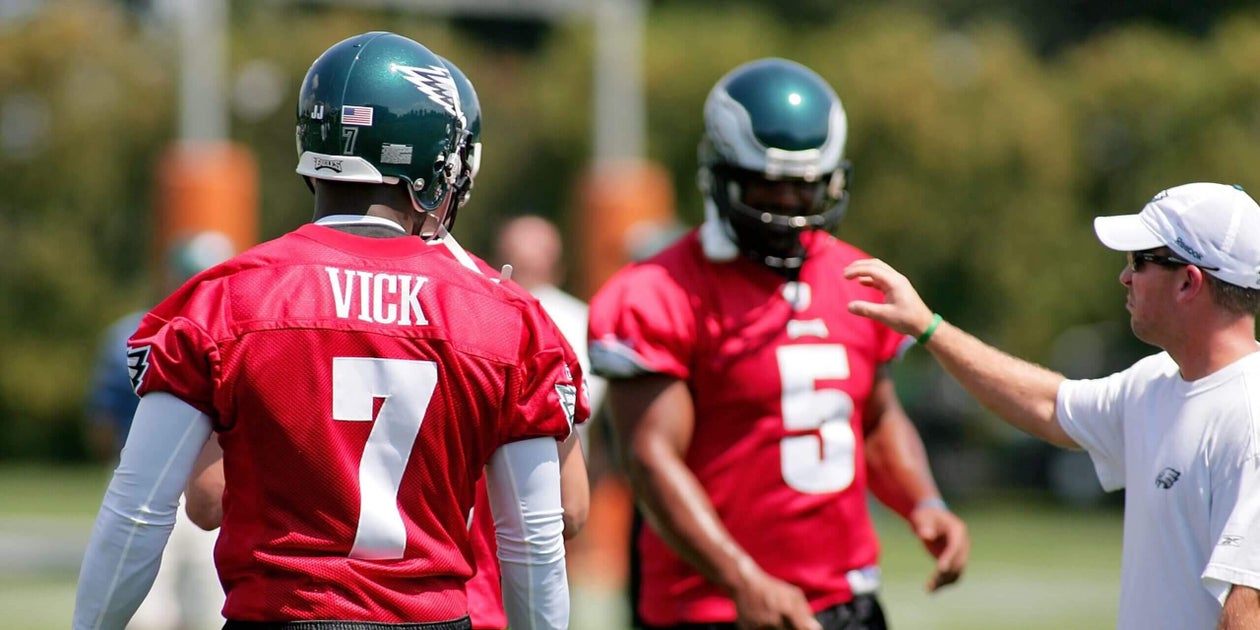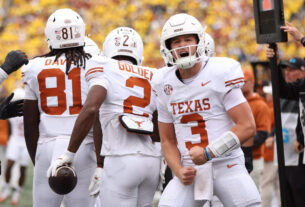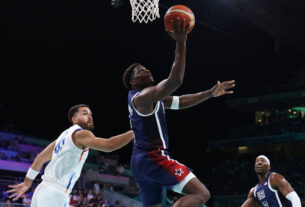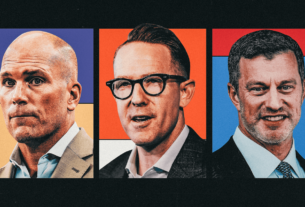The NFL has evolved to a point where a record 15 Black starting quarterbacks started Week 1 of the 2024 season.
That’s a far cry from when Warren Moon chose to sign with the CFL’s Edmonton Eskimos after a standout college career at Washington because he felt he wouldn’t get a fair opportunity to run an offense in the NFL. Similarly, Tony Dungy’s college days as a quarterback at Minnesota were for naught — as were others — as the NFL converted him into a defensive back.
It took until 2001 for the NFL to have its first Black quarterback selected No. 1 in the draft, when the Atlanta Falcons chose Michael Vick out of Virginia Tech. Fittingly, Vick wanted to find a way to highlight the Black quarterbacks who came before him and those who now are excelling.
The result is a three-part docuseries, “Evolution of the Black Quarterback,” which premieres Tuesday on Amazon Prime Video. The 13-year NFL veteran and current analyst for Fox Sports chatted with trailblazers such as James “Shack” Harris, the first Black quarterback to begin a season as the starter in professional football, and Doug Williams, the first Black quarterback to win a Super Bowl. Vick also spoke with contemporaries such as Patrick Mahomes, Jalen Hurts and Dak Prescott.
“I learned I pretty much had it easy. Those guys (back then) had it rough,” Vick said. “Shack, Doug, Warren, Donovan (McNabb) … in a lot of ways, the hate mail, it wasn’t a smooth transition.”
Vick, who is an executive producer on the projects, says the idea of the docuseries stemmed from his wife, Kijafa, and director Anthony Smith. He wanted to host the series to not only honor many of his heroes but also pay homage to the current players by visiting them around the country.
Progress is more than a journey. It’s a revolution.
Evolution of the Black Quarterback, arrives September 24. pic.twitter.com/VActyiLoXo
— NFL on Prime Video (@NFLonPrime) September 2, 2024
He interviewed Charlie Ward, the 1993 Heisman Trophy winner who led Florida State to a national championship. Ward, a two-sport athlete in college, opted to go to the NBA and played 11 seasons with the New York Knicks, San Antonio Spurs and Houston Rockets.
Prior to the filming of the docuseries, Vick and Ward had never met in person. Vick credits Ward for being a big inspiration on his football career. Ward said he’s still “blown away” when players like Vick talk about how he meant so much to them.
“I didn’t understand it at the time,” Ward said. “Giving people hope that they could do the same thing that I was doing as a Black quarterback, or just inspiring people that you can do what you want to do. Making decisions based on what you feel is best for you at that time. It’s great to hear that you were able to be an inspiration to those that were watching.”
Ward said he was able to excel in college as a quarterback because his coach, Bobby Bowden, changed his system to suit Ward’s style, which wasn’t the case in many other programs. Ward was a mobile quarterback. There was a time when critics found fault in those who didn’t stay in the pocket. An anonymous NFL defensive coordinator said Mahomes played “streetball,” and another league coach said Lamar Jackson struggled to read defenses in a 2022 article on quarterback tiers published by The Athletic.
Mahomes wouldn’t go so far as to say Black quarterbacks are evaluated differently because of race. In 2022, he said Black quarterbacks daily are “proving that we should’ve been playing the whole time.” Having nearly half of the league with a starting Black quarterback shows progress.
“I think we’ve been able to overcome a little bit of it from those times just because of the evolution of our culture, the mindset,” Ward said. “Racism is still a part of our culture. We’re not going to put our heads in the sand and say that it’s not the case, but it has come a long way.”
Telling the story of Black quarterbacks allowed Vick to examine his place in history. The first episode begins with Vick acknowledging he is viewed as a game-changer on the field. Many, however, will never forget Vick pleading guilty to charges related to a dogfighting ring in 2007 and spending 18 months in federal prison.
Vick said the ordeal was especially tough as he reflected on his grandmother, Caletha, who introduced him to football and died while he was incarcerated. Caletha had dementia when Vick went to prison, so he lied to her about his whereabouts. Before his sentence, he told her he was going to NFL training camp — even though it was during the fall.
“That was probably one of the toughest times of my life,” Vick said. “Having to leave and go away and to lie to my grandmother and tell her I was going to training camp when I was going to prison camp.”
Vick’s return to the NFL in 2009 also is covered in the docuseries. He ended up with the Philadelphia Eagles and became teammates with McNabb, who he drew inspiration from as the No. 2 pick in the 1999 NFL Draft. Vick was a freshman at Virginia Tech when McNabb was drafted. Seeing McNabb play college ball at Syracuse gave him a new perspective, as Vick, while in high school, once thought playing defensive back — not quarterback — would be his ticket to the NFL.
“I changed the game and fought for a right to be a dual threat and to make it a real thing,” he said. “Now you can draft a quarterback knowing that he’s going to be your dual threat, and you can feel comfortable knowing you’ve got a quarterback that’s going to give an opportunity (to win) every week.
“This project is about paying homage to those who came before me who allowed me to have that confidence to keep doing what I do.”
(Photo of Michael Vick and Donovan McNabb: Len Redkoles / Getty Images)





